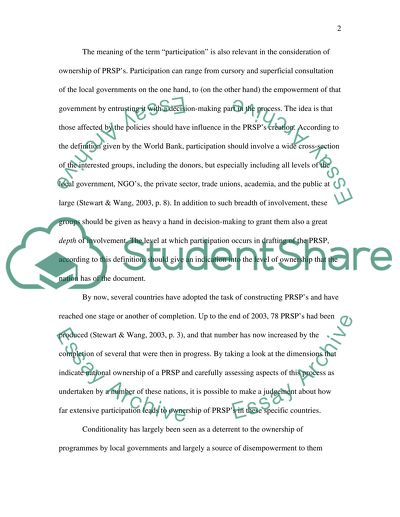Cite this document
(“Is the Claim that PRSPs Increase National Ownership of Programmes Assignment”, n.d.)
Is the Claim that PRSPs Increase National Ownership of Programmes Assignment. Retrieved from https://studentshare.org/politics/1536279-essay-question-is-the-claim-that-prsps-increase-national-ownership-of-programmes-through-extensive-participation-substantiated-in-specific-country-contexts
Is the Claim that PRSPs Increase National Ownership of Programmes Assignment. Retrieved from https://studentshare.org/politics/1536279-essay-question-is-the-claim-that-prsps-increase-national-ownership-of-programmes-through-extensive-participation-substantiated-in-specific-country-contexts
(Is the Claim That PRSPs Increase National Ownership of Programmes Assignment)
Is the Claim That PRSPs Increase National Ownership of Programmes Assignment. https://studentshare.org/politics/1536279-essay-question-is-the-claim-that-prsps-increase-national-ownership-of-programmes-through-extensive-participation-substantiated-in-specific-country-contexts.
Is the Claim That PRSPs Increase National Ownership of Programmes Assignment. https://studentshare.org/politics/1536279-essay-question-is-the-claim-that-prsps-increase-national-ownership-of-programmes-through-extensive-participation-substantiated-in-specific-country-contexts.
“Is the Claim That PRSPs Increase National Ownership of Programmes Assignment”, n.d. https://studentshare.org/politics/1536279-essay-question-is-the-claim-that-prsps-increase-national-ownership-of-programmes-through-extensive-participation-substantiated-in-specific-country-contexts.


